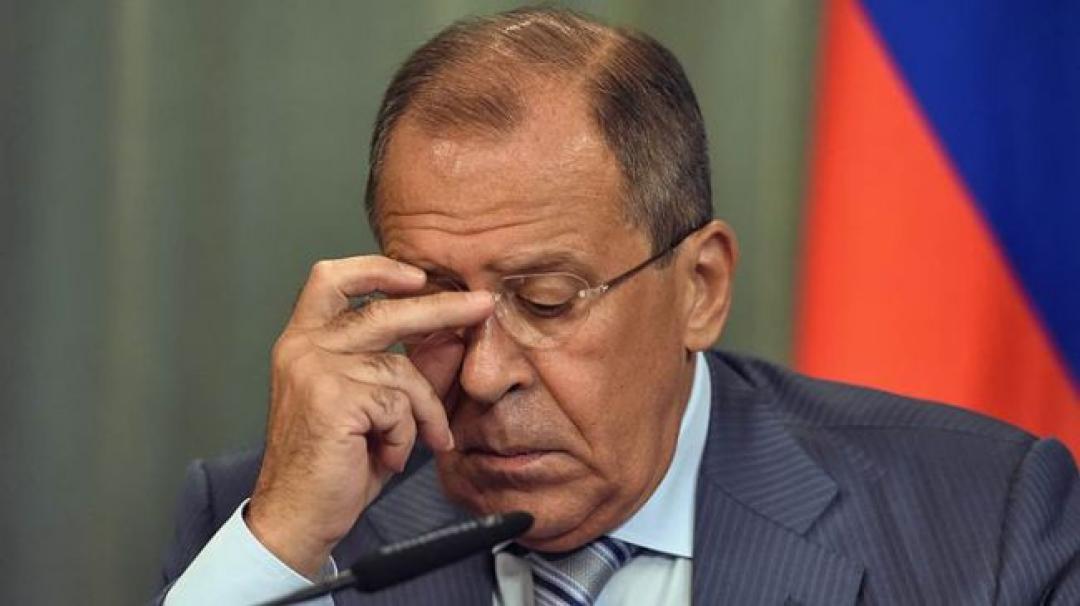
Lavrov speaks on Russian-Georgian relations

On 21 April, Russian Foreign Minister Sergey Lavrov spoke on the issues of Russian-Georgian relations during an online round table organized by the Gorchakov Fund.
Georgian-Russian relations
Asked about the possibility of normalizing Georgian-Russian relations, Lavrov spoke about the agreement reached during the withdrawal of Russian bases from Georgia between Russian President Vladimir Putin and former Georgian President Mikhaeil Saakashvili. “Putin and Saakashvili reached an agreement during one of the rounds of talks on the withdrawal of Russian bases from Georgia that a joint Russian-Georgian anti-terrorist center would be set up in or near the region where Russian military bases were deployed. 30 Russian and 200 Georgian specialists had to work there. It would be a kind of symbol that the common enemy of Georgia and Russia is terrorism, and then the situation in the Pankisi Valley was unstable. Therefore, this center would work on these issues, but then the Georgian side refused to implement this clause of the agreement. I think if they had shown more respect for this agreement then, it could have changed the scenario. It would be a gesture of trust and cooperation. Therefore, Russia will be ready to respond to the constructive steps of its Georgian neighbors, and Russia is interested in that,” he said.
He also spoke about the possibility of restoring diplomatic relations between Georgia and Russia. “Today, the Russian interests section and the Georgian interests section in Moscow are operating at the Swiss embassy. We do not have ambassadors. The heads of the sections are working. This allows us to maintain connections. However, if it were embassies, then economic, trade and cultural issues could be resolved more quickly and efficiently,” he said. According to him, if Georgia offers Russia to increase its trade representation, Moscow is ready to discuss this issue. He also expressed hopes that Russia and Georgia would resolve the issue of air traffic soon.
Lavrov also spoke about the statements made by President of Georgia Salome Zourabichvili about Russia. He said that “some statements by the President of Georgia are aggressive.” According to him, this does not contribute to the “establish[ment of] the right attitude in the society.”
The Senior Fellow in Carnegie Europe Thomas De Waal considered that Lavrov sent “mixed messages” in regard to his Russia-Georgia statements. “Today, FM Sergey Lavrov says that he hopes that in the near future flights to Tbilisi can be resumed. Says only [that] the main thing for us is that the Rusophobia campaign in Tbilisi is not affiliated,” he tweeted. “For what it’s worth: more evidence that Russia’s two main Georgian policies are frequently in contradiction. One prioritizes trade and communications and wants to see the 2011 Swiss trade corridor enacted; the other doubles down on Abkhazia and Tskhinvali (South Ossetia) and aims to keep Georgia insecure. Lavrov seems to be the main advocate of the former,” he added.
On 4 March, Georgian President Salome Zourabichvili delivered her second annual state of the nation address in Parliament. "If Russia wants to use the occupation to divert Georgia from its path and force the country to fail to accomplish its goal, it will not get the result it seeks,” said Zourabichivli in regard to the issue of Russian occupation. However, she added that if Russia's goal is to establish new neighbourly relations with Georgia and the region, this would be in everyone's interest. “These steps are neither a concession nor a compromise,” she said. (Caucasus Watch reported).
On 25 December, Zourabichvili suggested that the political negotiation format between Georgia and Russia should be based on the Normandy Four format which was implemented for the negotiations between Russia and Ukraine. She stated she knew of only two ways to solve problems, war and diplomacy. Georgia, however, was going "the third way" and asking its friends to use their diplomacy to help her country. Russian officials responded by saying that the Normandy Format would not be fitting as a negotiation model, since the Georgian and Ukrainian conflicts are quite different (Caucasus Watch reported).
See Also


Mirzoyan Meets US Deputy Assistant Secretary Joshua Huck

Azerbaijani President Holds Talks with UAE and German Business Delegations on Economic Cooperation

Grigoryan Confirms Armenia’s Readiness to Dissolve OSCE Minsk Group Upon Peace Treaty Signing

Azerbaijani Official Warns of Ecological Risks to Caspian Sea, Similar to Lake Urmia and Aral Sea

